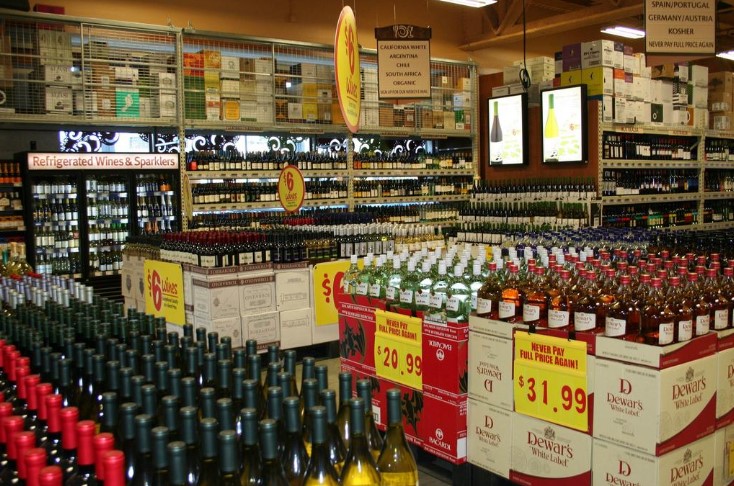Massachusetts chain stores may be allowed to have 18 beer and wine licenses by 2031, which would double the current threshold should a ballot referendum succeed at the polls this November.
Advancing Ballot Question 3 would gradually raise the alcohol license threshold for retailers, initially to 12 licenses in 2023 and to 15 licenses in 2027. It would also limit the number of “all alcoholic beverages” licenses a retailer could own to seven, unless the entity already has more than that.
The ballot question, which poses no changes to restaurants and bars, “would have a real but limited impact on the landscape of alcohol sales across Massachusetts,” according to a new report from the Center for State Policy Analysis at Tufts University’s Jonathan M. Tisch College of Civic College.
“Very few chains even approach the current limit of nine licenses, including familiar names like Cumberland Farms and Ocean State Job Lot. This may suggest limited demand (or capacity) for amassing more licenses,” the report released Thursday states. “Capping the number of all-liquor licenses at seven should have a similarly limited impact, as again there are very few liquor stores currently pushing against that limit.”
The report, which strikes a neutral stance on Ballot Question 3 overall, notes that cities and towns across Massachusetts would still have the power to limit the volume of liquor licenses in their individual jurisdictions.
That, in effect, may complicate chain stores’ efforts to obtain more beer and wine licenses, the report notes.
Self-checkout isn’t allowed under the referendum. But in a bid to align Massachusetts’ liquor laws with those around the country, the ballot question would let retailers start checking out-of-state driver’s licenses to verify customers’ ages and identities.
Supermarkets and convenience stores would be disproportionately impacted by the referendum’s fee structure for “fines in lieu of suspension,” the report asserts.
The fine calculation would be based all expected profits, not just on alcohol. A fine leveled against a supermarket for selling beer to a minor “could dwarf the cost of suspending beer and wine sales, making it hard for retailers to choose the ‘fine in lieu of suspension’ option that liquor stores would still have,” the report states.
Yet the fee formula would not make a difference to liquor stores, which only sell alcohol and not general goods.
“One virtue of this approach is that it creates a strong incentive for retailers to avoid license violations and simply follow the rules,” the report continues. “But it also seems to raise potential fairness questions.”
The report frames Ballot Question 3 as a “kind of compromise” to prior referendums — and a prelude to more substantive overhauls of liquor licenses and alcohol sales.
“Hopes for a long-lasting solution lie principally with the Legislature, but license reform is both a relatively low priority and an extremely thorny issue — involving competing interest groups and delicate interactions between the state and municipal authorities,” the report states.
The 21st Century Alcohol Reform Committee, which supports the ballot question, argues the fine system and self-checkout ban will enhance public safety and encourage “vigilance” from retailers, according to a voter guide published by Secretary of State Bill Galvin’s office. The out-of-state driver’s license provision could also bolster state tourism, according to the committee.
“A YES vote fulfills consumer desire for expanded convenience in a reasonable and balanced manner that also protects against illegal sales,” the committee wrote in the voter guide.
Food Stores for Consumer Choice, which opposes the ballot question, instead claims Massachusetts needs comprehensive reform — not an “incomplete solution to a complex problem.” The referendum will impose “unfair” penalties on grocers and other food stores, the group also warns.
“This flawed approach favors special interests in the alcohol industry, at the expense of cash-strapped consumers and their favorite local retailers,” the committee wrote in the voter guide. “We deserve more.”


